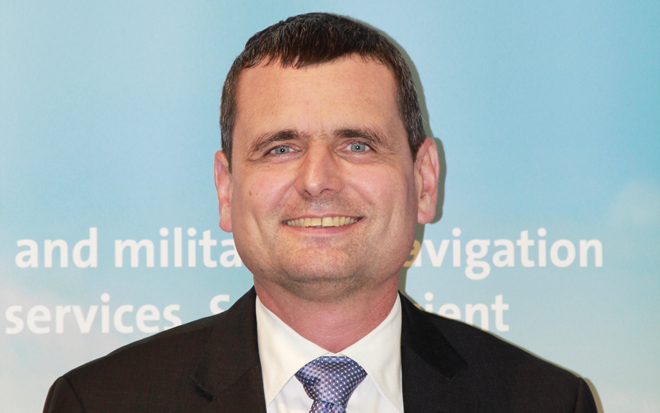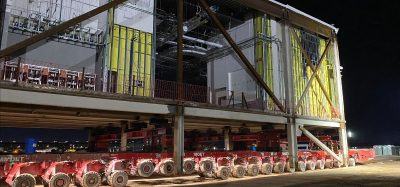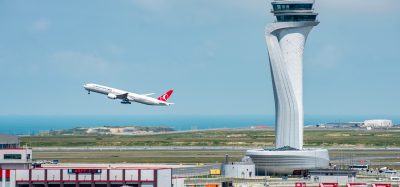Interview with skyguide’s Laurent Delétraz
- Like
- Digg
- Del
- Tumblr
- VKontakte
- Buffer
- Love This
- Odnoklassniki
- Meneame
- Blogger
- Amazon
- Yahoo Mail
- Gmail
- AOL
- Newsvine
- HackerNews
- Evernote
- MySpace
- Mail.ru
- Viadeo
- Line
- Comments
- Yummly
- SMS
- Viber
- Telegram
- Subscribe
- Skype
- Facebook Messenger
- Kakao
- LiveJournal
- Yammer
- Edgar
- Fintel
- Mix
- Instapaper
- Copy Link
Posted: 24 May 2016 | Laurent Delétraz (skyguide) | No comments yet
Laurent Delétraz, Sales and Business Development Manager at air traffic management solutions provider, skyguide, discusses implementation of the new RNAV approaches in Sweden…


You have extensive experience in airport operations, what changes have you noticed in the industry over your career to date?
I gained experience quite early when I got my pilot’s license at Geneva Airport in Switzerland. At that time the aviation environment was under far less pressure, and we had the opportunity to share the infrastructure between the different flying communities. The airlines, business aviation, general aviation, flight schools and all the users of the airspace were operating in relative harmony. I furthered my experience during my professional career as a pilot in business aviation, where it became increasingly important to get on-time access to airports to support my passengers in doing business.
During that same period, the aviation sector experienced a rapid change in its business and environment with the introduction in Europe of the low-cost airline model. The resulting increase in passenger demand had to be faced, while ensuring the sustainable growth of the aviation industry. This was in the context of more harmonisation and regulation worldwide – and in particular in Europe with the European Commission.
I am now with skyguide, providing support to our customers’ operations. I am very close to the airports and can clearly see a transformation which has enabled them to develop and stay focused on their business, while playing a key role in the economic development of the region they serve.
Market liberalisation, such as that experienced in Sweden, is certainly a key factor to be seen as an opportunity for the airports that can now choose their service providers and benefit from the competition. The flip-side for airports is that they will receive less direct public funding, reducing to zero in the coming years.
What are the major challenges for airports today?
The challenges may vary depending on airport operations. However, they will certainly include cost pressures, capacity, compliance with regulations, minimising the environmental impact and, for some, accessibility. All these challenges have to be addressed without compromising safety. The majority of airports have limited or no capacity to innovate, as a lot of time and effort is required just to comply with new regulations and adopt technologies that provide operational benefits.
In your opinion, what should airports do to be successful?
Let’s look at Sweden, where the market opened recently: Airports can now choose their air navigation services provider and 14 airports have decided to change their provider from LFV to ACR, a privately-owned company. The airports can also choose other service providers to support their operations, such as instrument flight procedures and airspace design, to take full advantage of an open market, with the option of collaborating with the best company.
In 2013 skyguide applied for certification from the Swedish Transport Agency to provide instrument flight procedures and airspace design to support Swedish airports in tackling their individual challenges – in particular with the implementation of the performance-based navigation ICAO resolution – with the additional benefit of a positive impact on their overall performance. This certification was obtained in 2014 and, two years later, five airports (Stockholm Västerås, Trollhättan, Ljungbyhed, Örebro and Stockholm Skavsta) are benefiting from these services.
What makes the difference at the Swedish airports?
They get access to state-of-the-art expertise provided by specialists who understand their problems and needs. These airports need to innovate quickly to comply with their operational requirements. Getting the resources at the right time is crucial for the airport managers in sustaining their operations. Implementing RNAV approaches with vertical guidance as a backup to the ILS, or to replace a non-precision approach, brings real benefits to the operation. The support of a major project for Örebro to extend its runway is ongoing with the re-design of the existing flight procedures, but also with the implementation of the new RNAV approaches. We are also developing specific noise-abatement RNP-AR procedures for Stockholm Skavsta. All these projects are supporting Swedish airports in achieving operational excellence.
What does the future hold for skyguide?
skyguide’s engagement towards our airport customers doesn’t stop after the first project. It is a continuous collaboration to maintain the existing procedures in operation while remaining fully aware of new challenges to be addressed. The next step for skyguide is to support UK airports with their UK CAA certification.
Biography
Laurent Delétraz has more than 25 years’ experience in the aviation industry. His career began in 1992 as a pilot in business aviation. He joined skyguide in 2003 and currently works in the company’s Solutions team.
To find out more about the products and services skyguide can deliver visit: www.skyguide.ch


















